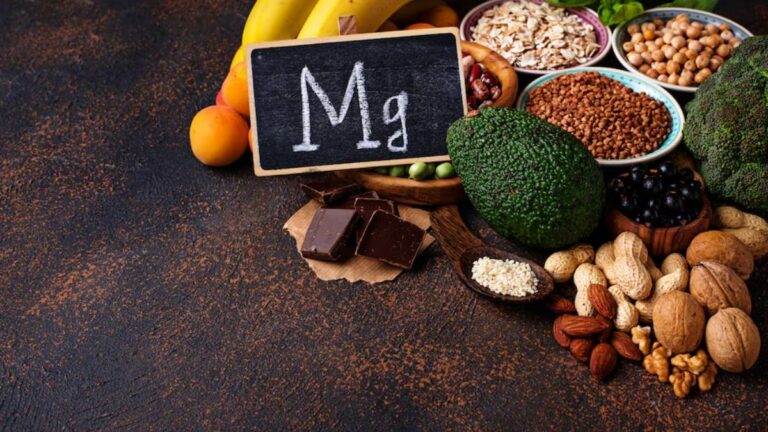Magnesium, an essential mineral, is crucial in maintaining optimal health. It is a key player in energy production, bone density enhancement, and heart function improvement. Furthermore, magnesium aids in regulating blood pressure and blood sugar levels. Despite its importance, many individuals experience magnesium deficiency, leading to symptoms such as fatigue and muscle cramps. Incorporating magnesium-rich foods into your diet can help alleviate these symptoms and promote overall well-being. This article aims to explore a variety of the best magnesium-rich foods to incorporate into your meals.
Importance of Magnesium
Please remember the following information about magnesium:
– Bone Health: Magnesium regulates calcium metabolism, supporting bone density and preventing osteoporosis.
– Heart Health: Magnesium helps lower blood pressure, reduce inflammation, and prevent cardiovascular disease.
– Muscle Function: Magnesium relaxes muscles, alleviating cramps, spasms, and soreness.
– Energy Production: Magnesium is essential for ATP production, supporting energy and endurance.
– Nervous System: Magnesium regulates neurotransmitters, supporting mood, cognitive function, and sleep.
Mental Health Benefits:
– Anxiety and Stress Relief: Magnesium calms the nervous system, reducing anxiety and stress.
– Mood Regulation: Magnesium supports serotonin production and stabilizes mood and emotions.
– Cognitive Function: Magnesium enhances focus, concentration, and memory.
– Sleep Quality: Magnesium regulates melatonin production, promoting restful sleep.
Other Benefits:
– Digestive Health: Magnesium supports gut bacteria, alleviating constipation and IBS symptoms.
– Immune System: Magnesium boosts immune function, reducing inflammation and infection risk.
– Skin Health: Magnesium improves skin hydration, reducing acne and inflammation.
Deficiency Risks:
– Fatigue and Weakness
– Muscle Cramps and Spasms
– Osteoporosis and Fractures
– Cardiovascular Disease
Recommended Daily Intake:
– Adult men: 400-420 mg/day
– Adult women: 310-320 mg/day
– Pregnant women: 350-360 mg/day
– Breastfeeding women: 310-320 mg/day
Top 10 Magnesium-Rich Foods to Boost Your Optimal Health
Here are 10 magnesium-rich foods:
Almond
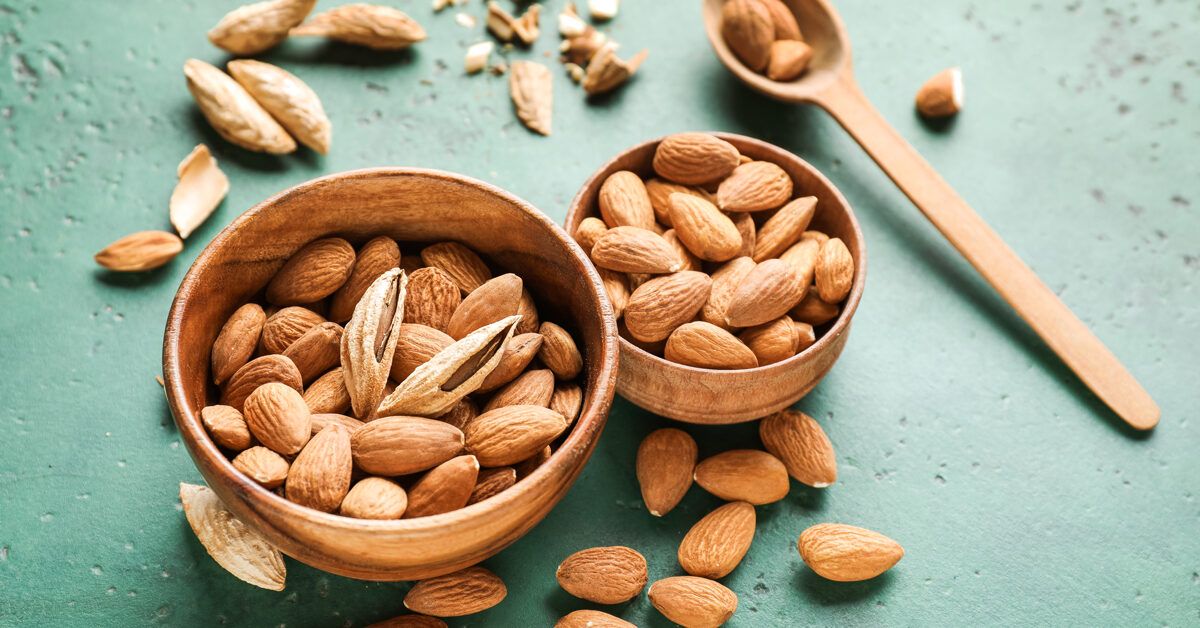
Indulge in the delectable crunch of almonds, a satisfying and wholesome snack brimming with health-boosting properties. A mere 1-ounce (28g) serving of these nutrient-packed nuts delivers 161 calories, 6g of protein, and 3.5g of fiber, making them an exceptional choice for those seeking to manage their weight and enhance their digestive health. Furthermore, almonds are a rich source of vital vitamins and minerals, boasting 33% DV of vitamin E, 20% of magnesium, and 15% of potassium. Moreover, they are laden with beneficial fats, antioxidants, and phytochemicals that aid in cholesterol reduction, blood sugar regulation, and cognitive function improvement. Whether enjoyed as a standalone snack, added to oatmeal or yogurt, or incorporated into baking and cooking, almonds offer a myriad of nutritional benefits.
Details:
– 1 ounce (28g) = 161 calories, 6g protein, 3.5g fiber
– Vitamin E: 33% DV
– Magnesium: 20% DV
– Potassium: 15% DV
– Rich in healthy fats, antioxidants, and phytochemicals
Health Benefits:
– Supports heart health
– May improve blood sugar control
– Aids in weight management
– Supports cognitive function
– May reduce inflammation
Dark Leafy Greens
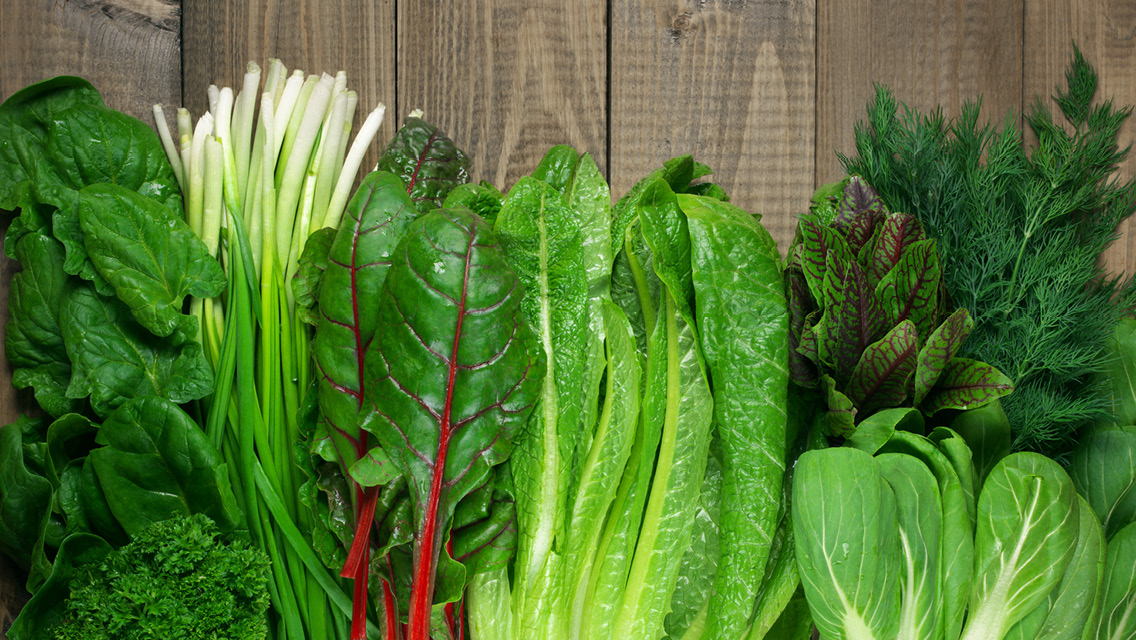
Delve into the verdant world of dark leafy greens such as spinach, kale, and collard greens, each a treasure trove of essential nutrients and a panacea for various health woes. Bursting with vitamins A, C, and K, as well as vital minerals like calcium, iron, and magnesium, these greens play a pivotal role in fortifying bone health, bolstering immune function, and fueling energy production. Spinach reigns supreme in its iron content, kale dazzles with its abundant vitamin C, and collard greens stand out as a rich source of fiber. Furthermore, these leafy greens are teeming with antioxidants and anti-inflammatory compounds, protecting against chronic ailments such as heart disease, diabetes, and certain cancers. Whether incorporated into vibrant salads and invigorating smoothies or sautéed with garlic as a tempting side dish, integrating dark leafy greens into your diet is a simple yet profound step toward bolstering your overall well-being.
Details:
– Spinach: 1 cup cooked = 840μg vitamin K, 4.9mg iron
– Kale: 1 cup cooked = 547μg vitamin K, 93mg vitamin C
– Collard Greens: 1 cup cooked = 518μg vitamin K, 5g fiber
Health Benefits:
– Supports bone health
– Boosts immune function
– May reduce chronic disease risk
– Supports healthy digestion
– May improve cognitive function
Black Beans

Indulge in the goodness of nutrient-dense black beans, a versatile legume that offers many health benefits. A cup of cooked black beans provides 225 calories, 15g of protein, 9g of fiber, and essential vitamins and minerals such as folate, magnesium, and potassium. These beans are also brimming with antioxidants and phytochemicals, which can contribute to lowering cholesterol, managing blood sugar levels, and reducing inflammation. Moreover, their high soluble fiber content supports healthy digestion and bowel function. Add black beans into your meals to salads, soups, stews, and tacos, or use them as a protein-rich substitute for meat.
Details:
– 1 cup cooked = 225 calories, 15g protein, 9g fiber
– Folate: 64% DV
– Magnesium: 30% DV
– Potassium: 20% DV
– Fiber: 9g (36% DV)
Health Benefits:
– Supports heart health
– May regulate blood sugar
– Aids in weight management
– Supports healthy digestion
– May reduce inflammation
Avocado

Savor the nutrient-rich treasure that is the avocado. A medium-sized avocado offers 322 calories, 4g of protein, 10g of fiber, and essential vitamins and minerals such as potassium, vitamin C, and vitamin E. Packed with healthy fats, avocados support heart health by lowering cholesterol and triglycerides. Furthermore, they contain antioxidants and anti-inflammatory compounds that may reduce inflammation, improve cognitive function, and aid in weight management. Relish avocados in guacamole, salads, and smoothies or as a delectable topping for omelets, tacos, or whole-grain toast.
Details:
– 1 medium = 322 calories, 4g protein, 10g fiber
– Potassium: 14% DV
– Vitamin C: 10% DV
– Vitamin E: 10% DV
– Healthy fats: monounsaturated and polyunsaturated
Health Benefits:
– Supports heart health
– May reduce inflammation
– Aids in weight management
– Supports cognitive function
– May improve digestion
Pumpkin Seeds
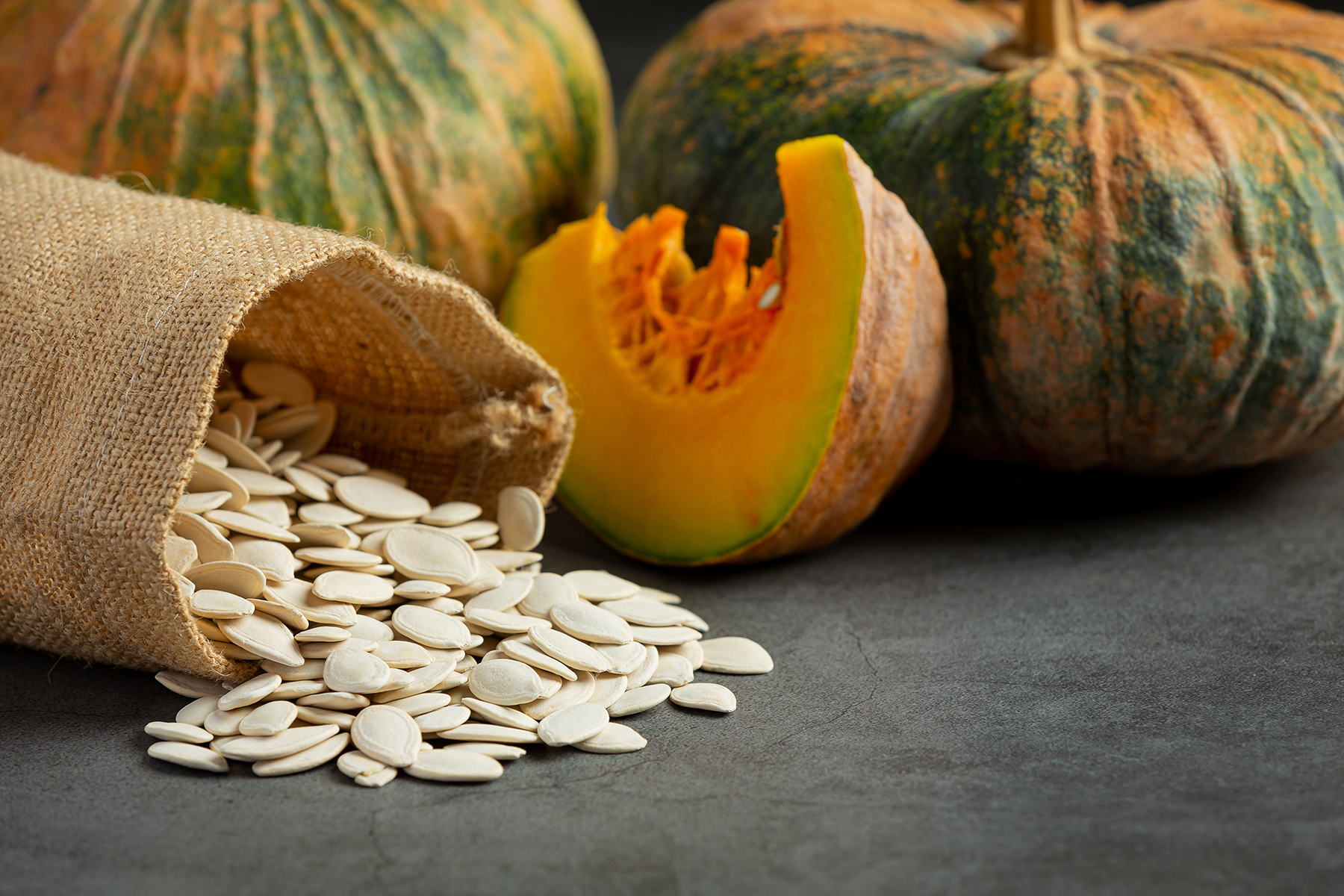
Pumpkin seeds are a delicious and nutrient-packed snack offering various health benefits. With just one ounce (28g) of pumpkin seeds, you get 151 calories, 7g of protein, 1.7g of fiber, plus essential minerals like magnesium, zinc, and potassium. These seeds are also rich in antioxidants and healthy fats, supporting prostate health, bone density, and immune function. Additionally, they contain tryptophan, an amino acid that promotes relaxation and enhances sleep quality. You can enjoy pumpkin seeds in various forms, such as roasted, toasted, or raw, and easily incorporate them into your diet by adding them to salads, yogurt, or oatmeal for a satisfying and nutritious crunch.
Details:
– 1 ounce (28g) = 151 calories, 7g protein, 1.7g fiber
– Magnesium: 37% DV
– Zinc: 14% DV
– Potassium: 12% DV
– Healthy fats: monounsaturated and polyunsaturated
Health Benefits:
– Supports prostate health
– Promotes bone density
– Boosts immune function
– Supports relaxation and sleep quality
– May reduce inflammation
Quinoa
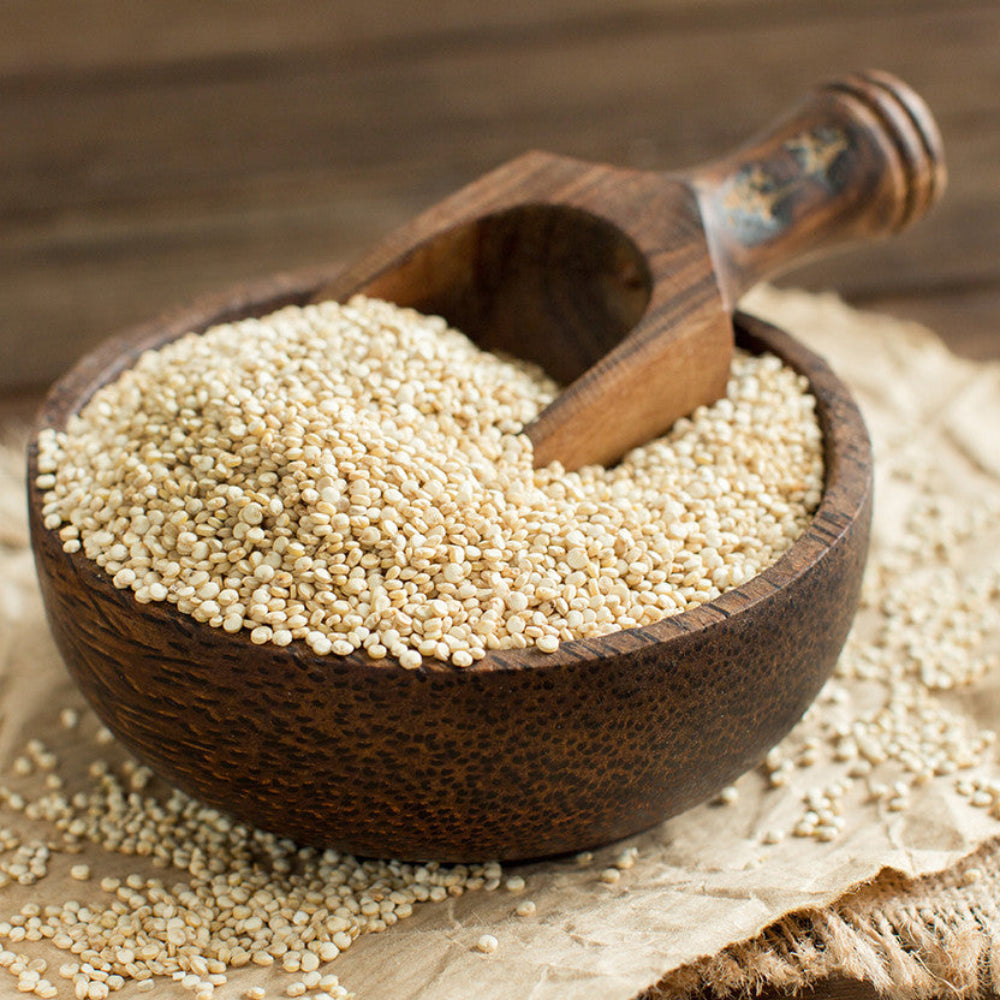
Quinoa, an ancient grain celebrated for its versatility and nutritional richness, offers many health benefits. When cooked, a single cup of quinoa provides 150 calories, 4g of protein, 5g of fiber, and an array of essential minerals, including iron, magnesium, and potassium. Quinoa is a complete protein containing all nine essential amino acids. Additionally, it is abundant in antioxidants and anti-inflammatory compounds, contributing to reduced inflammation, improved heart health, and enhanced digestive well-being. Embrace the adaptability of quinoa by incorporating it into various culinary creations, from vibrant salads to flavorful stir-fries, or relish it as a wholesome side dish. Delve into its versatility in vegetarian and vegan cuisine for a truly nourishing experience.
Details:
– 1 cup cooked = 150 calories, 4g protein, 5g fiber
– Iron: 15% DV
– Magnesium: 30% DV
– Potassium: 12% DV
– Complete protein: all 9 essential amino acids
Health Benefits:
– Supports heart health
– May reduce inflammation
– Supports digestive health
– May improve blood sugar control
– High in antioxidants
Bananas
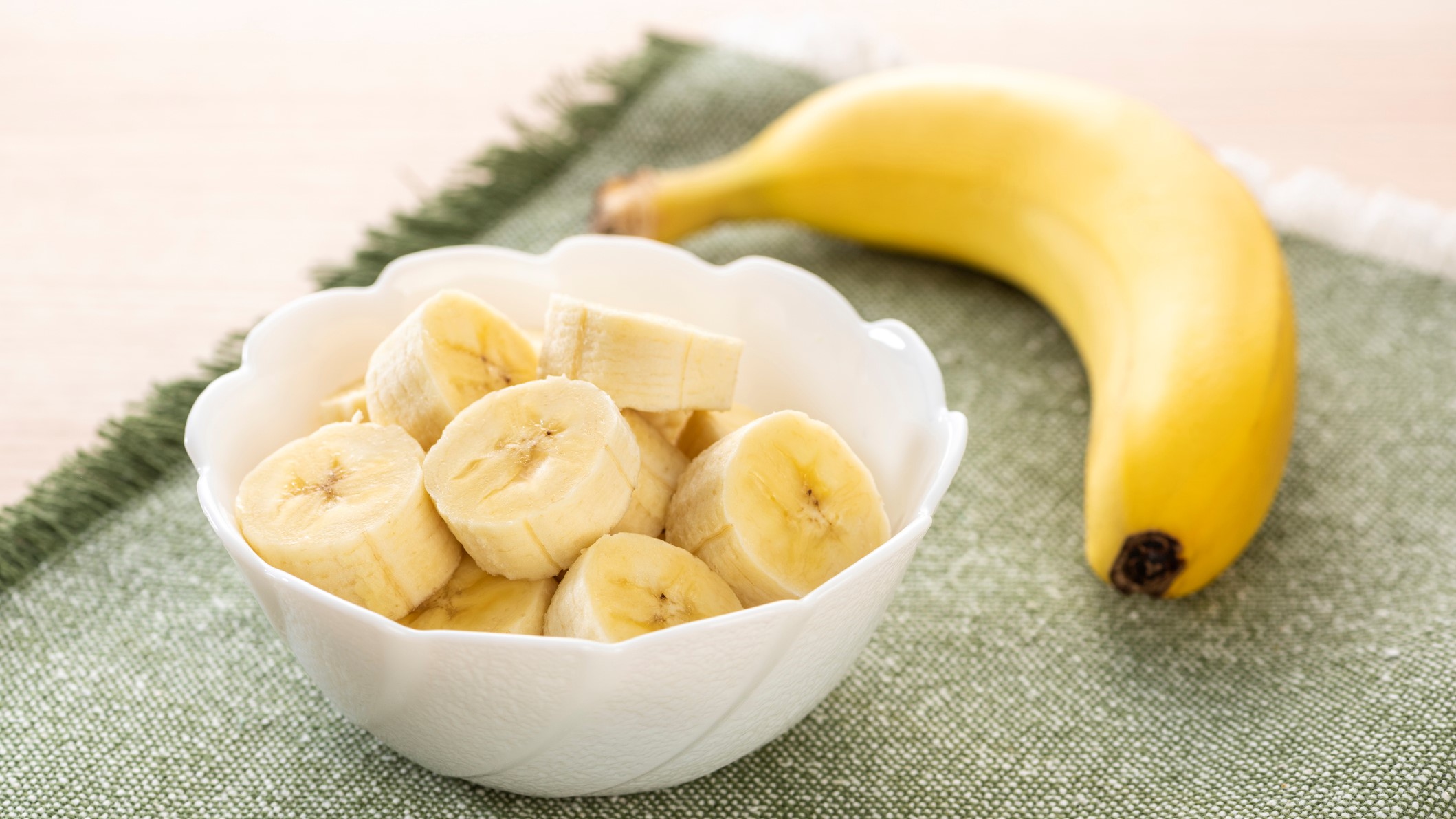
Bananas are a delightful and versatile fruit that tastes great and provides many health benefits. A medium-sized banana offers 105 calories, 3g of protein, 3g of fiber, and essential vitamins and minerals such as potassium, C, and B6. Known for promoting healthy digestion, supporting heart function, and aiding in energy production, bananas are the perfect go-to snack for athletes and individuals leading active lifestyles. Moreover, their antioxidant and phytochemical content may contribute to reducing inflammation, enhancing mood, and fortifying bone health.
Details:
– 1 medium = 105 calories, 3g protein, 3g fiber
– Potassium: 12% DV
– Vitamin C: 10% DV
– Vitamin B6: 20% DV
– Antioxidants: phenolic compounds
Health Benefits:
– Supports healthy digestion
– Promotes heart health
– Boosts energy production
– May reduce inflammation
– Supports bone health
Dark Chocolate

Dark chocolate is a decadent and nutritious delight with an impressive range of health perks. With a minimum of 70% cocoa solids, dark chocolate is a rich source of vital minerals like iron, magnesium, and copper, as well as flavonoids, which are renowned for their support of heart health and cognitive function. Indulging in an ounce (28g) of dark chocolate treats you to 170 calories, 2g of protein, and 12g of fat. Furthermore, dark chocolate is believed to aid in lowering blood pressure, uplifting mood, and mitigating inflammation. Savor dark chocolate in moderation to relish its guilt-free benefits.
Details:
– 1 ounce (28g) = 170 calories, 2g protein, 12g fat
– Iron: 10% DV
– Magnesium: 15% DV
– Copper: 20% DV
– Flavonoids: antioxidants and anti-inflammatory compounds
Health Benefits:
– Supports heart health
– May improve cognitive function
– May lower blood pressure
– Boosts mood
– May reduce inflammation
Sesame Seeds
:max_bytes(150000):strip_icc()/sesameseeds2x-58a4b41c3df78c4758d5c507.jpg)
Sesame seeds, tiny yet mighty, are a nutrient-rich condiment with many health benefits. A mere tablespoon (14g) of these seeds contains a treasure trove of nutrition, providing 88 calories, 2g of protein, and 2g of fiber. Furthermore, they contain essential minerals, including calcium, magnesium, and potassium. Sesame seeds are also rich in antioxidants and contain sesamin, a remarkable compound that may contribute to reducing cholesterol and blood pressure. Not stopping there, they also play a vital role in supporting bone and digestive health while potentially combating inflammation. To savor their goodness, sprinkle sesame seeds on salads and stir-fries or incorporate them into baked goods.
Details:
– 1 tablespoon (14g) = 88 calories, 2g protein, 2g fiber
– Calcium: 8% DV
– Magnesium: 20% DV
– Potassium: 10% DV
– Antioxidants: sesamol and sesamin
Health Benefits:
– Supports heart health
– May lower cholesterol and blood pressure
– Supports bone health
– Promotes digestive health
– May reduce inflammation
Tofu
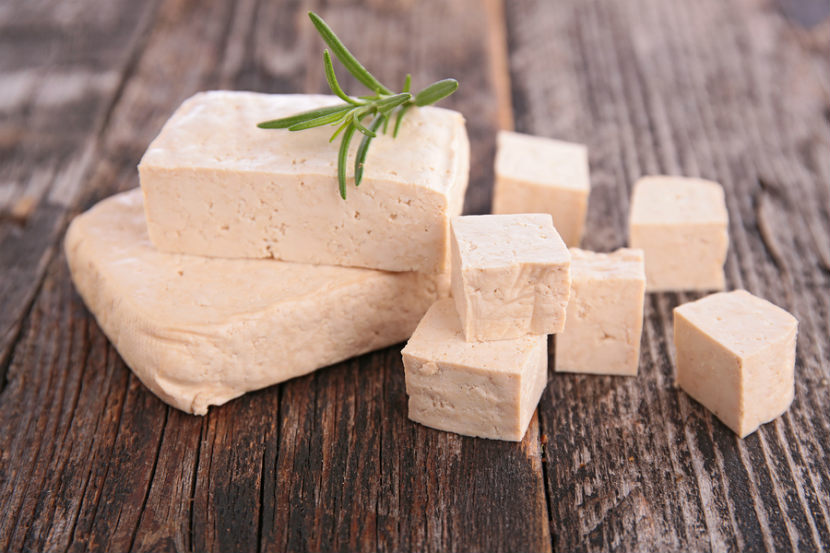
Tofu, a chameleon of the culinary world, is a versatile and nutritious plant-based protein derived from soybeans. In a mere 3-ounce serving, tofu offers a modest 80 calories yet packs a punch with 9g of protein and 2g of fat. Additionally, it’s a rich source of essential minerals such as iron, calcium, and potassium. Tofu is pivotal in supporting heart health, reducing the risk of certain cancers, and aiding in weight management. Enriched with isoflavones, it may also offer relief from menopausal symptoms and contribute to improved bone density. Embrace the versatility of tofu by incorporating it into stir-fries, curries, and soups or using it as a delectable meat substitute in dishes like veggie burgers.
Details:
– 3-ounce serving = 80 calories, 9g protein, 2g fat
– Iron: 10% DV
– Calcium: 20% DV
– Potassium: 10% DV
– Isoflavones: genistein and daidzein
Health Benefits:
– Supports heart health
– May reduce cancer risk
– Aids in weight management
– Alleviates menopausal symptoms
– Supports bone health
Conclusion
Adding magnesium-rich foods to your daily meals can be a straightforward and impactful way to increase energy levels, promote bone health, and enhance overall well-being. Numerous options are available, from nutrient-dense dark leafy greens to nourishing fatty fish. Making minor adjustments to your dietary choices can significantly alleviate symptoms associated with magnesium deficiency and support good health. Additionally, seeking guidance from a healthcare professional or a registered dietitian is essential to determine the most suitable approach for your needs. Adopting a well-balanced diet and ensuring adequate magnesium intake can pave the way to feeling revitalized, focused, and healthy. Boost your magnesium intake with these nutrition rich foods!
FAQs
Q: What are the symptoms of magnesium deficiency?
A: Fatigue, muscle cramps, weakness, anxiety, and sleep disturbances.
Q: Are magnesium supplements necessary?
A: Consult a healthcare professional to determine if supplements are needed.
Q: What is the recommended daily intake of magnesium?
A: Adult men: 400-420 mg/day, Adult women: 310-320 mg/day.

